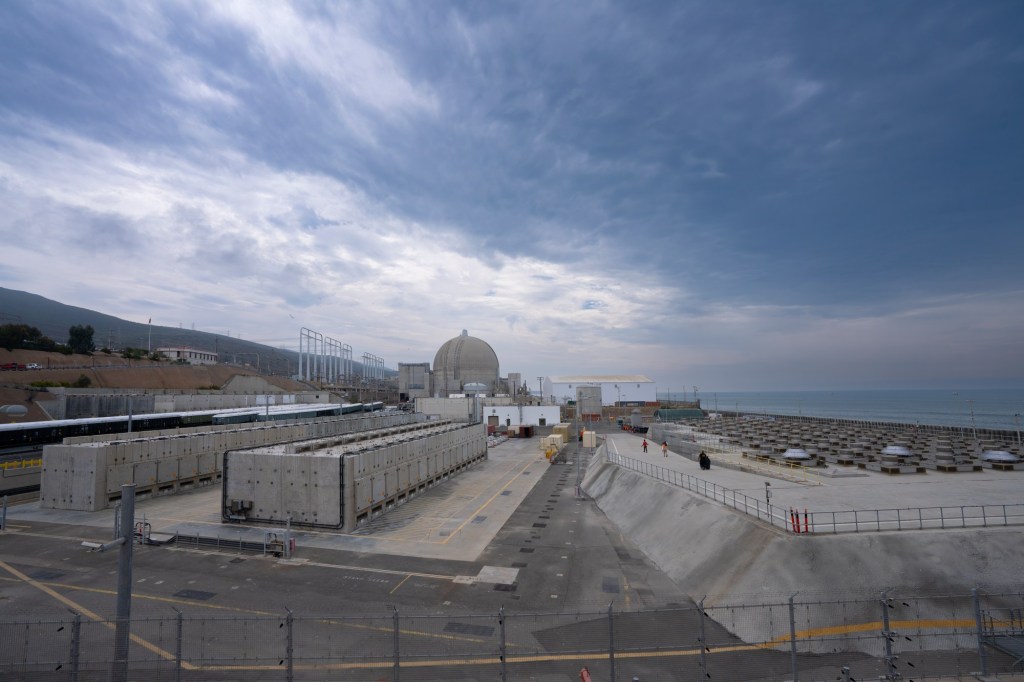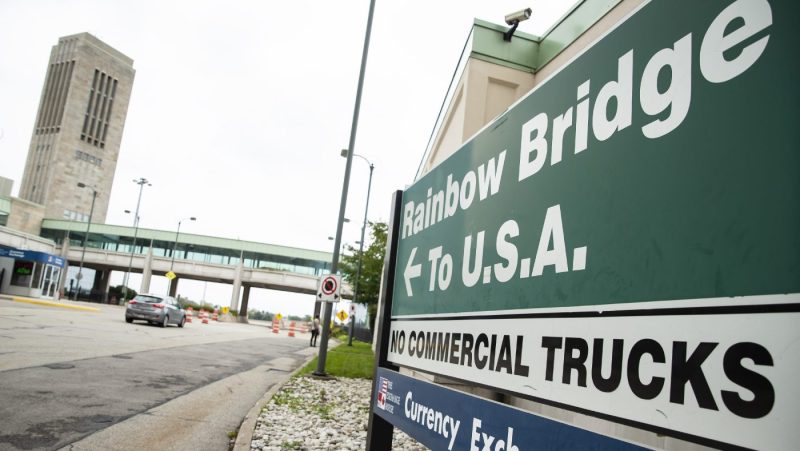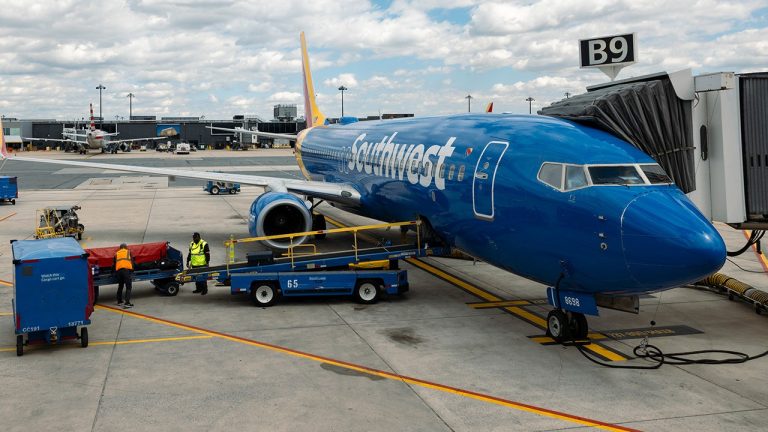

A trio of Southern California lawmakers are making another effort to pass a federal law that would give priority to removing nuclear waste from sites such as the San Onofre Nuclear Generating Station.
“The bill is not designed exclusively to be a bill only for our area,” said Rep. Mike Levin, D-San Juan Capistrano. “There are other parts of the country … that have similar problems, but I think it is certainly going to be an accelerant to get spent fuel off of our coast as quickly and safely as possible.”
Levin joined Reps. Darrell Issa, R-Bonsall, and Young Kim, R-Anaheim Hills, on Wednesday to reintroduce the bipartisan Spent Fuel Prioritization Act in the U.S. House of Representatives. Two previous iterations of the bill did not make it through the numerous legislative hurdles required for a bill to become law.
Roughly 89,000 metric tons of spent fuel from assemblies have accumulated at commercial nuclear plants in 35 states scattered around the U.S. over the years.
At San Onofre, some 1,610 metric tons (or 3.55 million pounds) of waste is stored in dozens of canisters at the north end of the plant, known as SONGS for short.
When the day eventually comes that the federal government opens storage sites where spent fuel from around the country can be shipped, the Spent Fuel Prioritization Act — if it becomes law — would give priority to decommissioned sites in areas with large populations, earthquake hazards and which pose a national security risk.
That would put SONGS near the top of the list, considering that more than 9 million people live within 50 miles of the plant, the plant’s location tucked between Interstate 5 and the Pacific and Southern California’s history of seismic activity.
The bill would supersede the U.S. Department of Energy’s “oldest fuel first” policy that gives preference to waste according to the chronological date in which it was produced.
“Our Southern California communities deserve the peace of mind that comes from knowing that spent fuel is no longer stored” at SONGS, Issa said in a statement.
The federal government is responsible for finding a place to store spent fuel assemblies from commercial power plants. But even though the first nuclear plant in the U.S. opened in 1958, no dedicated storage federal facility has been established.
A giant underground permanent repository in Nevada called Yucca Mountain had been slated to take the waste but the Obama administration cut off funding for the site in 2010, following years of protests from lawmakers in the Silver State who had long opposed it. The project’s costs came to at least $15 billion.
The federal government has since gone back to the drawing board, looking at potential sites to accept some or all of the country’s commercial spent fuel, either on an interim (for still-to-be determined number of years) or permanent basis.
“I think there is an acknowledgment that we cannot keep spent fuel at sites … in perpetuity — that would be irresponsible,” Levin told the Union-Tribune in a phone interview from Washington, D.C. “The federal government has abdicated its responsibility for 40 years and I’m doing everything I can to try to make up for lost time.”
SONGS has not produced electricity since 2012, after a leak in a steam generator tube led to its closing.
Operated by Southern California Edison, SONGS is in the process of being decommissioned.
The plant is in the sixth year of dismantling above-ground structures, which is scheduled to wrap up by the end of 2028. Total cost of the entire decommissioning project is approximately $4.7 billion.
Some 73 stainless steel canisters loaded with spent fuel assemblies have been lowered into vertical cavities at the storage site, behind a seawall a little more than 100 feet from the Pacific. An additional 63 canisters of waste rest horizontally nearby, including 13 filled with material from the dismantlement project.
Edison officials say more than 80% of the canisters could be taken off-site now if a permanent or interim storage facility existed and 100% of canisters will be ready to be shipped by 2030.
Originally Published:






